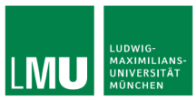Following a series of events within the Genealogies of Memory framework, the 2019 conference "Myths, Memories and Economies: Post-Socialist Transformations in Comparison" will aim to explore the still ongoing and dynamic process of memory sedimentation of the economic post-'89 transformations, as well as their contradictory valences ranging from unlimited opportunities to traumatic failure.
Attendance is free, but prior registration is required. Please see the details below.
In case of any questions, you can contact the event's coordinator at: genealogies@enrs.eu
To know more about this year's edition, including information on keynote speakers and conference convenors: click here















